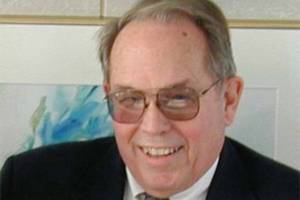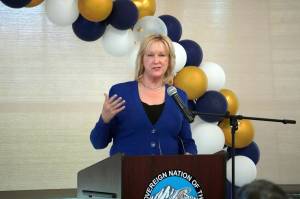Voices of Alaska: A ‘fix’ in search of a flaw
Published 11:57 pm Saturday, February 14, 2015
Sen. Pete Kelly’s ongoing campaign to amend Alaska’s constitution to change the way we select and retain judges poses a grave threat to fair and impartial courts in our state. While couched as a mission to add a stronger public voice to the selection and retention process by diminishing the role of lawyers, his efforts would instead allow partisan politics to take hold of the one branch of government that is designed to remain as free from politics as possible. Doubling the number of politically appointed members on the Alaska Judicial Council and requiring legislative approval of lawyer members will undermine the fundamental promise of equal justice that Alaskans have a right to expect.
First, our constitution’s framers gave lawyers a prominent role in our merit-based judicial selection system for good reason. By law, judges must be lawyers, and are of necessity drawn from the legal community. It is common sense that lawyers can provide invaluable input on the professional competence of their peers seeking judgeships. Along with interviews, writing samples, public comments and other information, the council surveys lawyers on a candidate’s legal ability, temperament, integrity, diligence, and sense of fairness to ensure that judicial selection decisions are made with full awareness of a candidate’s potential to perform the great demands of the job. Lawyer members of the council represent the importance of merit and are key to ensuring the success of a merit-based system. Contrary to Kelly’s claims, the system has worked well for over half a century to bring Alaska one of the finest judiciaries in the world.
Second, the framers viewed any requirement for legislative confirmation of the lawyer members of the council as ill-advised because it would create another avenue for the influence of politics on the judicial branch. In the words of George McLaughlin, Chair of the Judiciary Committee at Alaska’s Constitutional Convention, “(i)f you require a confirmation of your attorney members you can promptly see what will happen … No longer is the question based solely on the qualification of the candidate for the bench … If political correctness enters into the determination of the selection of those professional members who are to be placed on the judicial council, the whole system goes out the window. All you have is one other political method of selection of your judges.”
Third, the suggestion that the public interest was undermined when the Chief Justice voted in agreement with lawyer members instead of public members in the five recent cases where the two groups were evenly divided ignores the record in each case. The duty of the council is to nominate to the governor a minimum of two of the most highly qualified candidates. In each of the circumstances where candidates received 3-3 ties, more than adequate numbers of other candidates received enough votes to be nominated. In two cases, there were four nominees that came out ahead of the 3-3 vote-getters; in two cases, there were three nominees. In one case, there were two nominees who each received five council votes out of six — both obviously viewed by the council as significantly more qualified than the 3-3 candidate. Suggesting that the Chief Justice should have exercised tie-breaking votes to add candidates on the margin to already sufficient pools of nominees that both lawyer and public members viewed as more highly qualified ignores the council’s responsibility to nominate only — in the words of one constitutional convention delegate — “the best available timber.”
Fourth, Sen. Kelly’s implication that the Chief Justice should refrain from breaking ties in the nominating process for vacancies on the Alaska Supreme Court ignores a responsibility that has been vested with the office since statehood, and which has served our state well. When a vacancy exists on our highest court, it is more imperative than ever that nominees meet the highest qualifications of the profession. When candidates receive three out of six votes in pools where others receive four, five, and even unanimous votes, it is difficult to argue that they are among the most qualified. Declining to forward their nominations is completely justifiable if we are to trust the overall integrity of our merit-selection process.
Alaska faces many critical problems at this time that demand our full attention. Alaska’s judicial selection system is not one of them. Sen. Kelly’s proposal is a fix in search of a flaw, and should fail.
Geoffry B. Wildridge is an attorney from Fairbanks and president of the Alaska Bar Association. The opinions expressed here are his own.




